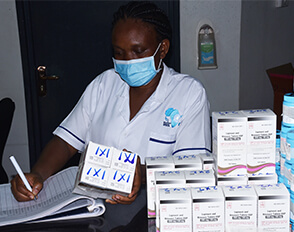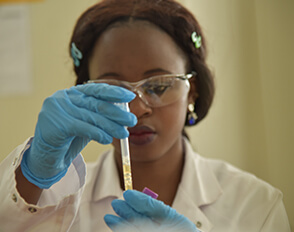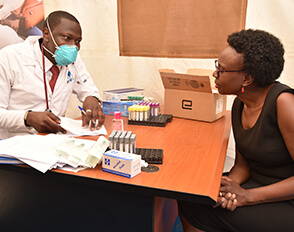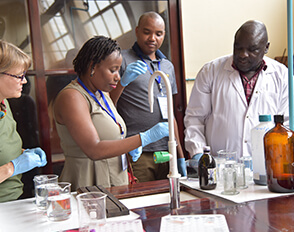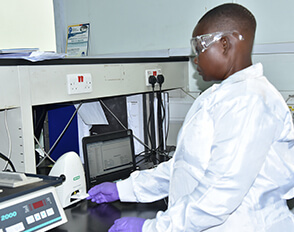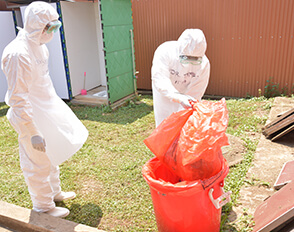
Uganda hosts more than 1.5 million refugees (UNHCR&OPM, 2022). The West Nile Region is home to about 787,928 refugees, from South Sudan and the Democratic Republic of Congo. They live in the districts of Adjumani (245,289), Madi Okollo and Terego (196,458), Obongi (125,687), and Yumbe (227,996). Refugees in Uganda are entitled to the same public services as their host communities under the country’s open-door refugee policy. Uganda’s government ensures that COVID-19 vaccines are accessible to and provided to refugees in the fight against the epidemic.
In Uganda, COVID-19 vaccines were received on March 10, 2021, through the COVAX facility. The Health Care Workers, Teachers, security personnel, Persons aged 50 years and individuals with underlying medical conditions between 18-50 years of age, and refugees who fell under any of the priority groups were initially targeted for the initial phases of vaccinations. According to UNHCR, by November 2021, in Uganda, 0.86% had received a first dose, and 0.21% had been fully vaccinated. However, accessibility of COVID-19 vaccination services and uptake among the refugees were hindered by several barriers: myths, misinformation, disinformation, language barriers, misconceptions, vaccine hesitancy, physical, financial, social challenges, inadequate knowledge, fear of infertility, fear of impotence and safety of the vaccines.
In partnership with Infectious Disease Institute (IDI) and other partners, the Ministry of Health (MOH) employed several strategies to increase COVID-19 vaccine uptake among refugees in 5 districts (Adjumani, Yumbe, Obongi, Madi-Okollo, and Terego) in West Nile from March to October 2022.
The strategies included:
- Social mobilization and engagement with OPM (Office of the Prime Minister), district health teams, district political leaders, settlement commanders, and health education of refugees at reception sites.
- Provision of vaccination at reception points and health facilities within the settlement, conducting targeted outreaches, and through accelerated mass vaccination campaigns.
After six months of implementing the strategies, uptake of 1st doses amongst the refugees improved from 0.86% (2,716/315,790) to 33.3% (105,209/315,790), and 2nd doses enhanced from 0.21% (221/105,209) to 10.6% (11,203/105,209).
While there was an increase in the uptake of COVID-19 vaccination amongst refugees, the uptake was overall low due to the following challenge that will need special attention as the MoH continues to integrate COVID-19 immunization into routine immunization. These include low-risk perception of COVID-19; myths among refugees that vaccines are harmful, cause sterility lead to slow progress to death; Some refugees believe they receive different vaccines from host community which is toxic.

